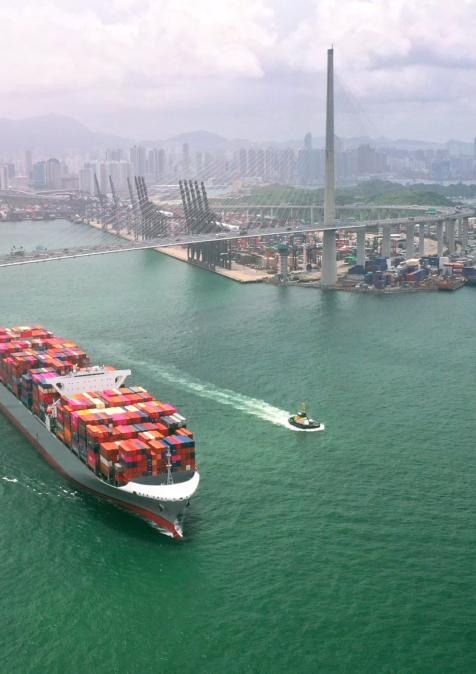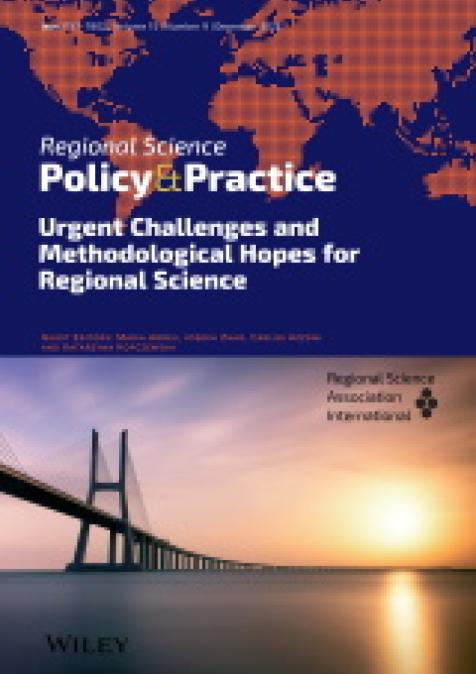Publications /
Opinion
This blog was originally published on huawei.com
What impact do you think ICT and connectivity can have in fighting global poverty?
At the World Bank we had a very enthusiastic and optimistic view on the potential impact of technology and ICT. Brazil had a cash transfer program for poorer families where households received money directly from the government, regardless of whether they had bank accounts. The money was not distributed by hand but done electronically: the government had built a registry of 25 million Brazilians considered to be below the poverty threshold. The money was transferred to the women of the household. It had a huge impact because it was straightforward and empowered the families, particularly the women, giving them money for basic needs.
One of the advantages of this kind of technological registry was that we could know the poor by name. We could potentially collect information on their different needs, in terms of infrastructure, education, health care and so on, that could give the government a potential guide for specific policy interventions in particular neighborhoods. Multilateral institutions do not govern, they support; they give policy advice and finance programs. But in addition to providing funds, a major function of the World Bank is to play a hummingbird role. Hummingbirds pollinate flowers, and these multilateral institutions can also pollinate with knowledge.
With the Brazilian experience, the World Bank was keen to learn and participate – helping Brazil to develop a system for checking whether the money was really reaching those who needed and deserved it. And it was amazing: the rate of good targeting was close to 95%, with just a 5% margin of error. The Bank was ready to disseminate the experience with other interested countries, although Asians are not fond of this kind of direct cash transfer, as it’s seen to potentially undermine the will of poor people to get out of poverty. But overall we were proud to play this hummingbird role, to be the bridge in terms of knowledge dissemination and knowledge pollination.
And was it connectivity that provided the ability to share the knowledge?
We knew the role ICT could play in battling global poverty, because it provides tools and solutions that empower individuals and communities. Access to information and education is facilitated by ICT, which makes it potentially easier to break the cycle of poverty. But you need certain conditions in place – the infrastructure and affordable access to it for the adoption of ICT tools – so governments and organizations need to invest in building this infrastructure.
We did a survey in 2010 which found that, in the poorest 20% of households, seven out of ten had a mobile phone. They were more likely to have access to mobile phones than to toilets or to clean water. It’s incredible. But that allowed financial inclusion, as shown by the experience of countries like Kenya, with its M-Pesa digital payment system. Even with the old-style, more primitive cellphones, they were able to develop a network that reduced the cost of a remittance.
I also remember meeting the former UN Secretary-General, Kofi Annan, who he talked about a project to install cell phone towers around Lake Victoria. The number of casualties because of storms taking fishermen by surprise was significant. And this network would provide weather warnings to be shared with inhabitants surrounding the lake through cellphones using visual mechanisms – so even illiterate people could be warned. I remember how enthusiastic we all became with this great example of how ICT can improve the conditions of poor people.
It comes back to your point about access to information, about knowledge and being able to access these services.
Exactly. ICT can also help farmers, informing them about weather patterns, market price, where to locate their products, and also best practices in farming. I saw it in Brazil, where an agricultural engineer explained to me how he cherry-picked 18 different types of seeds appropriate to the needs of his soil. He was able to maximize his activity using equipment and weather forecasting to decide when to seed, when to collect and so on.
There’s so much potential. But for ICT to become concrete and effective, you have to have the corresponding policies in place – that access to reliable and affordable internet infrastructure. And also promotion of digital literacy, to help those Lake Victoria inhabitants do even better, for instance. You have to have the regulatory framework, to encourage innovation, and at the same time, protect the interests of users.
ICT with AI is a double-edged sword. It has a tremendous potential to increase productivity and to facilitate learning, but it has the potential to exclude too, with questions about security and misinformation. So it's a double-edged sword. It all depends on the presence of a regulatory framework. You have to have an environment where public-private partnerships can flourish, so as to accelerate the deployment of ICT solutions and reach the underserved. So there is potential but there is also risk.
Is that risk especially acute for poorer areas?
Education is the base. We should not underestimate the potential of learning and development among poor people: once they have the basics, they can go up the ladder. And there are improvements in governance that can come with ICT. In one case, parents of schoolchildren had an app to give information to the central government about the attendance (or not) of teachers at school. With this mechanism of bottom-up monitoring, the absence of teachers dropped dramatically. This improvement was made possible by ICT.
The goal of SDG1 is to eradicate extreme poverty worldwide, and half of all poverty worldwide by 2030. Is it going to be achieved – and if not, why not?
We have made undeniable progress towards those goals, owing to a combination of world economic growth and policies directed at exactly that goal. More recently, however, it looks like we have stagnated, particularly in Africa. But let’s go back: do you know why the Brazilian cash transfers that I spoke about earlier went to the women?
Because the women will spend it more responsibly?
A survey done in the 1990s in Brazil, and replicated in other parts of the world, shows that in households where women have a strong say over how resources are used, the weight and height of babies are better than those where the male is in charge. When I gave classes in very chauvinistic or very racist places I would say: “Well, gender colleagues, the women are just better, and that's the proof.”
So, when it comes to tackling extreme poverty, basically go through women. Looking after them should be your starting point?
That’s exactly right. They prioritize the use of resources, and this could have long-term implications. Children who are better fed, and with better school and health attendance – and the money is conditional on that – will be higher human capital when they become adults.








